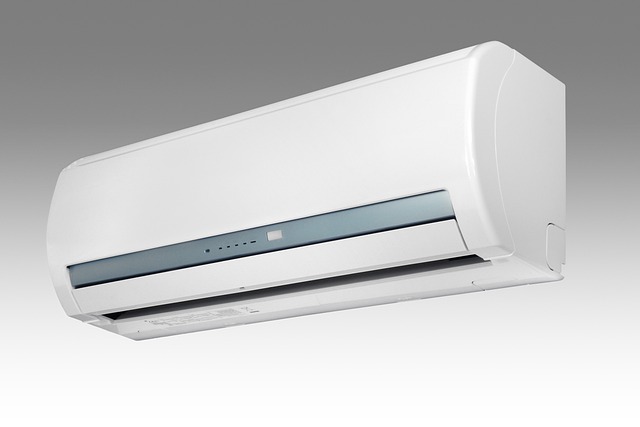In Fort Collins, maintaining high energy efficiency in residential and commercial buildings is a priority, especially through rigorous HVAC system maintenance. The city requires regular inspections of these systems by certified professionals to ensure they operate at peak performance, which is crucial for the city's sustainability goals. These comprehensive assessments evaluate all HVAC components, including thermostats, heat exchangers, and filters, ensuring they are clean and functioning correctly. Routine maintenance, including checking for leaks, maintaining airflow, and inspecting duct insulation, is essential for the longevity and efficiency of these systems. In Fort Collins, engaging with advanced technologies and energy-efficient solutions recommended during these inspections can significantly enhance system performance, leading to lower energy bills and a reduced carbon footprint. The city also conducts detailed HVAC energy audits, tailored to its unique high-altitude climate and extreme temperature variations, to provide homeowners with customized solutions for optimal year-round system performance. These audits involve reviewing historical energy usage and utilizing specialized diagnostic tools to identify inefficiencies and recommend improvements. By following a systematic approach, Fort Collins' residents can ensure their HVAC systems are energy-efficient and contribute positively to the environment.
title: “Optimizing Home Comfort and Saving Energy in Fort Collins with HVAC Inspections”
In the pursuit of sustainable living, energy efficiency stands out as a cornerstone for homeowners in Fort Collins. The unique climate of this region necessitates a keen eye on HVAC system performance to ensure both comfort and cost savings. This article delves into the intricacies of conducting thorough inspections to enhance energy efficiency. From the critical role of regular maintenance to leveraging local resources for upgrades, we guide you through best practices for Fort Collins HVAC systems. Discover how a comprehensive energy audit can pinpoint areas for improvement and learn about the latest in energy-saving strategies tailored for Fort Collins homes. By understanding the importance of each step, from assessing system performance to engaging with local HVAC professionals, you can ensure your system operates at peak efficiency, all year round.
- Maximizing Energy Efficiency: A Guide to Fort Collins HVAC Inspections
- Best Practices for Conducting Comprehensive HVAC Energy Audits in Fort Collins Residences
Maximizing Energy Efficiency: A Guide to Fort Collins HVAC Inspections

In Fort Collins, optimizing energy efficiency in residential and commercial buildings is a priority, and one of the key components in this endeavor is the maintenance and inspection of Heating, Ventilation, and Air Conditioning (HVAC) systems. Regular inspections by certified professionals are crucial for ensuring these systems operate at peak efficiency. Fort Collins HVAC inspections focus on identifying and rectifying issues that could lead to energy waste. These inspections assess the condition of all HVAC components, from the thermostat settings to the functional state of heat exchangers and filters. By verifying that each part is clean, calibrated correctly, and functioning properly, homeowners and businesses can maintain comfortable indoor environments while reducing energy consumption and costs. Additionally, adhering to local regulations and leveraging Fort Collins’ commitment to sustainability through these inspections not only conserves energy but also contributes to environmental preservation.
To enhance the longevity and performance of your HVAC system, it’s important to engage in a routine maintenance schedule. This proactive approach includes checking for leaks, ensuring optimal airflow, and inspecting insulation within ducts—all practices that fall under Fort Collins HVAC inspections. Advanced technologies and energy-efficient solutions are often recommended during these inspections, which can lead to significant improvements in your system’s efficiency. By staying informed about the latest innovations and adhering to best practices for HVAC maintenance, residents of Fort Collins can significantly reduce their carbon footprint and enjoy the benefits of lower utility bills all year round.
Best Practices for Conducting Comprehensive HVAC Energy Audits in Fort Collins Residences

When conducting comprehensive HVAC energy audits in Fort Collins residences, adherence to best practices is paramount for accurate assessments and effective recommendations. A thorough inspection begins with a detailed review of the property’s energy usage history, understanding the local climate conditions specific to Fort Collins, and considering the type of HVAC system installed. Utilizing advanced diagnostic tools, auditors should measure airflow, test ductwork integrity, and inspect insulation quality to identify potential air leaks or under-insulated areas that can significantly impact energy efficiency.
Fort Collins HVAC systems often face unique challenges due to its high-altitude location, which affects system performance. Therefore, it is crucial to assess the system’s design, installation, and maintenance records. Auditors must also consider the seasonal weather patterns, including the extreme temperature variations characteristic of Fort Collins, to provide tailored recommendations that optimize system operation year-round. By following these methodical steps, auditors can offer Fort Collins homeowners precise, actionable advice for enhancing their HVAC systems’ energy efficiency and reducing their carbon footprint.
In wrapping up our exploration of energy efficiency, it’s clear that Fort Collins HVAC inspections play a pivotal role in optimizing residential energy usage. Adhering to the best practices outlined for conducting thorough HVAC energy audits is not just a guide but a practical approach to sustainable living in Fort Collins. Homeowners and professionals alike are encouraged to implement these strategies to ensure their systems operate at peak efficiency, contributing to both cost savings and environmental sustainability. By embracing this proactive approach, the community can collectively reduce its carbon footprint and promote a healthier environment for future generations.
